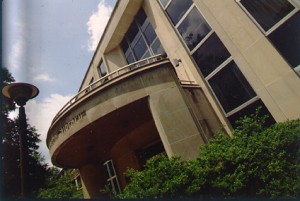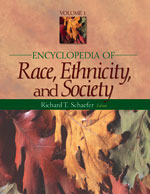Faculty Library Survey, May 2009: The results are in!
 The overall feedback from the survey on questions relating to library services and collections was remarkably positive, but faculty respondents made many critical comments about the library facilities.
The overall feedback from the survey on questions relating to library services and collections was remarkably positive, but faculty respondents made many critical comments about the library facilities.
Nearly a third of Villanova’s full-time faculty participated in the survey. According to over 90% of survey respondents, library resources and services are ‘more important’ or ‘as important’ today as they were five years ago. Books (85%) and e-journals (86%) ranked at the top as ‘essential’ or ‘very important’ library resources.
An impressive 80% of survey respondents know one or more of the librarians on “their” library liaison team and the overwhelming majority of them is satisfied with the services provided by the liaison librarians. Library liaison teams, librarians, the Library’s website and colleagues are the leading sources for information about new library resources, services and events.
Faculty members are frequent visitors of Falvey’s website, but use the physical space far less frequently than undergraduate students do. Faculty would like to visit the physical building more often, but find it a very uninviting environment that does little to stimulate their intellectual endeavors. One survey respondent noted that “the place desperately needs a renovation; it’s grim, dated space, when it should be a centerpiece celebrating our teaching and research mission.”
Read a short summary of the results online. The Library will conduct follow-up focus groups with faculty during the spring semester and is still looking for interested faculty volunteers. Please contact Jutta Seibert (ext. 9-7876) if you would like to participate.

 The Biennial ICPSR Meeting will take place next week from Monday Oct. 5 to Friday Oct. 9. Please take a look at the
The Biennial ICPSR Meeting will take place next week from Monday Oct. 5 to Friday Oct. 9. Please take a look at the  Cambridge Scientific Abstracts (CSA) makes it easy to search your favorite social science databases simultaneously. Simply click on the Specific Databases link below the search boxes and select from
Cambridge Scientific Abstracts (CSA) makes it easy to search your favorite social science databases simultaneously. Simply click on the Specific Databases link below the search boxes and select from  It’s that time of the year again: The fall semester is right around the corner and everybody is scrambling to finish his or her syllabus. Please contact me as early as possible if you plan to bring your class to the Library for a research workshop, even if it will be much later in the semester. The Library’s classroom tends to get booked quickly. I find that research workshops are most beneficial when they are scheduled after students have picked their paper topics.
It’s that time of the year again: The fall semester is right around the corner and everybody is scrambling to finish his or her syllabus. Please contact me as early as possible if you plan to bring your class to the Library for a research workshop, even if it will be much later in the semester. The Library’s classroom tends to get booked quickly. I find that research workshops are most beneficial when they are scheduled after students have picked their paper topics. Falvey added
Falvey added  The
The